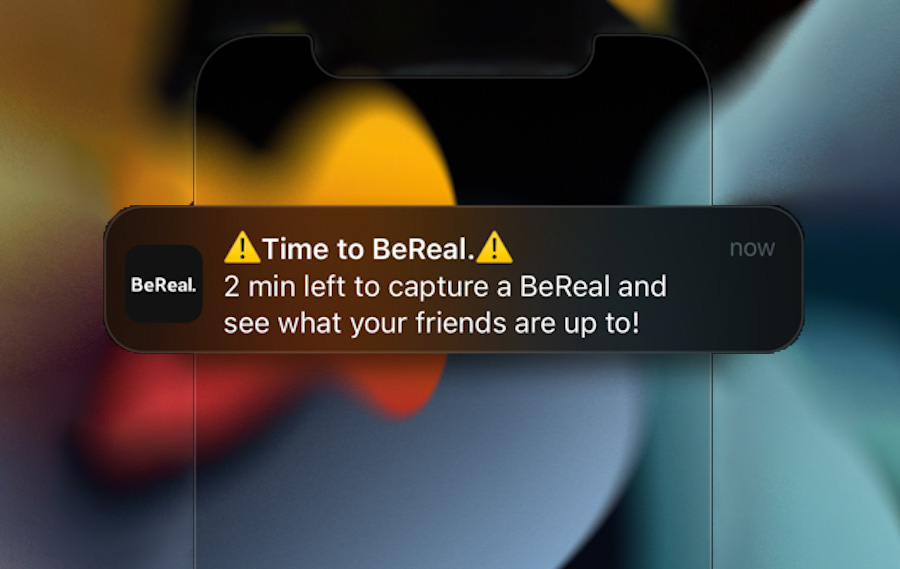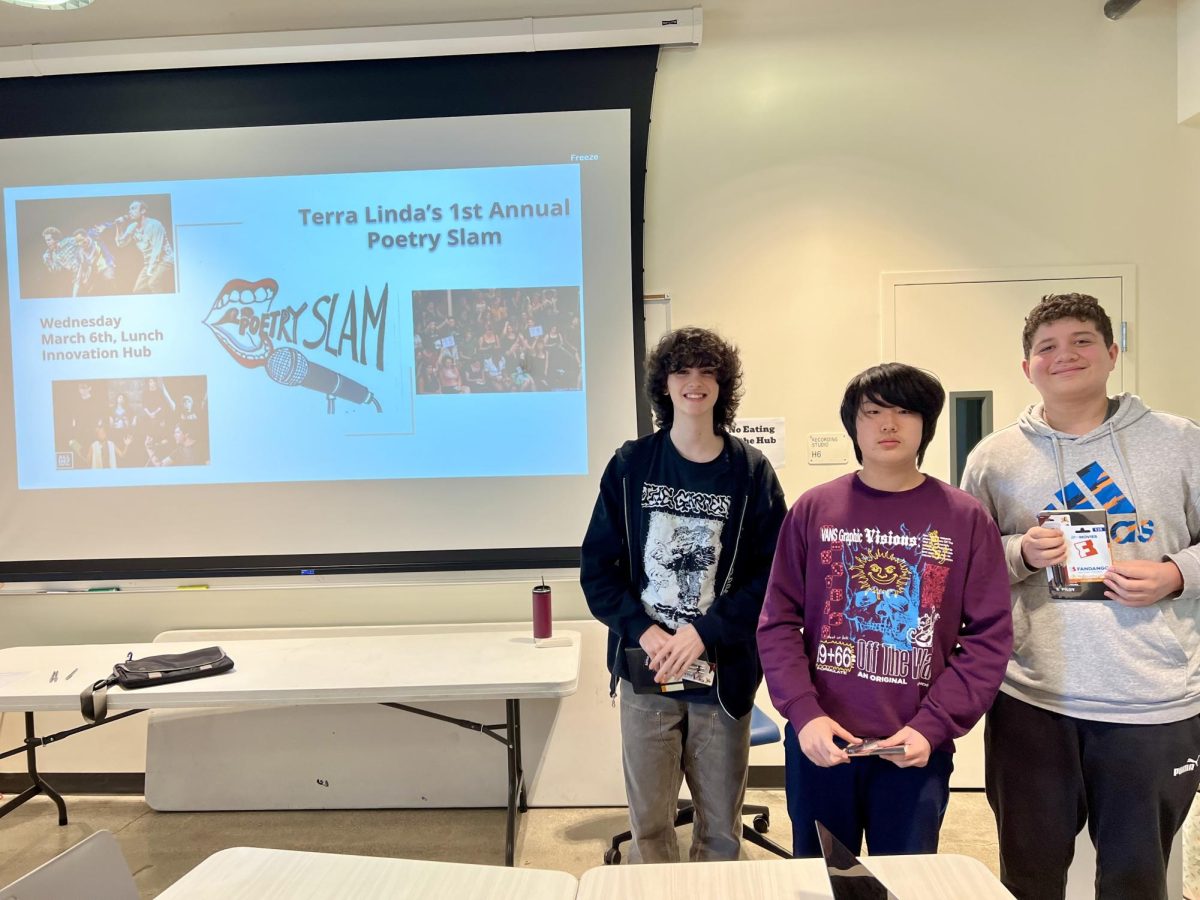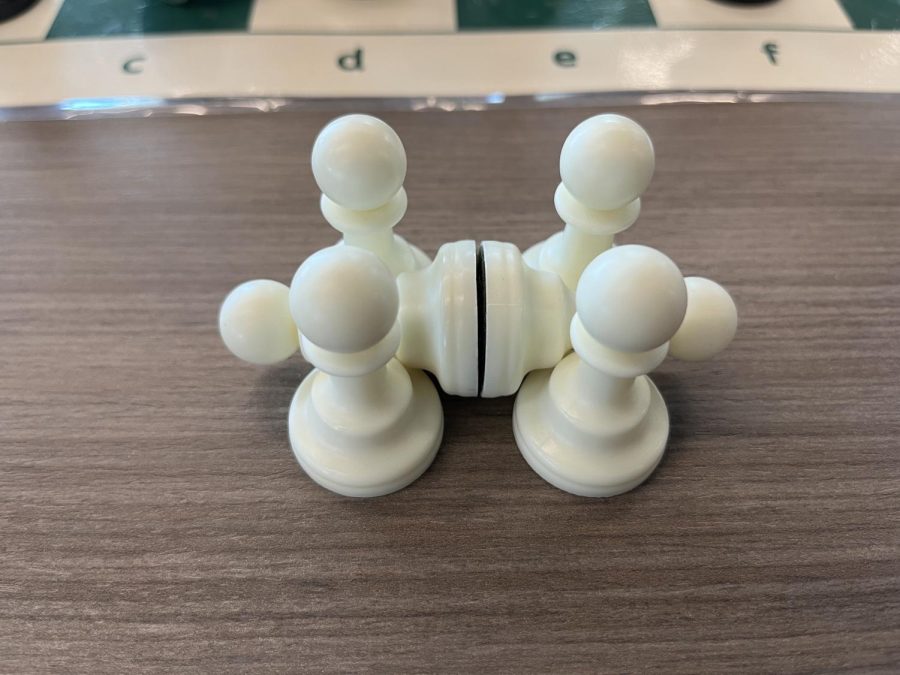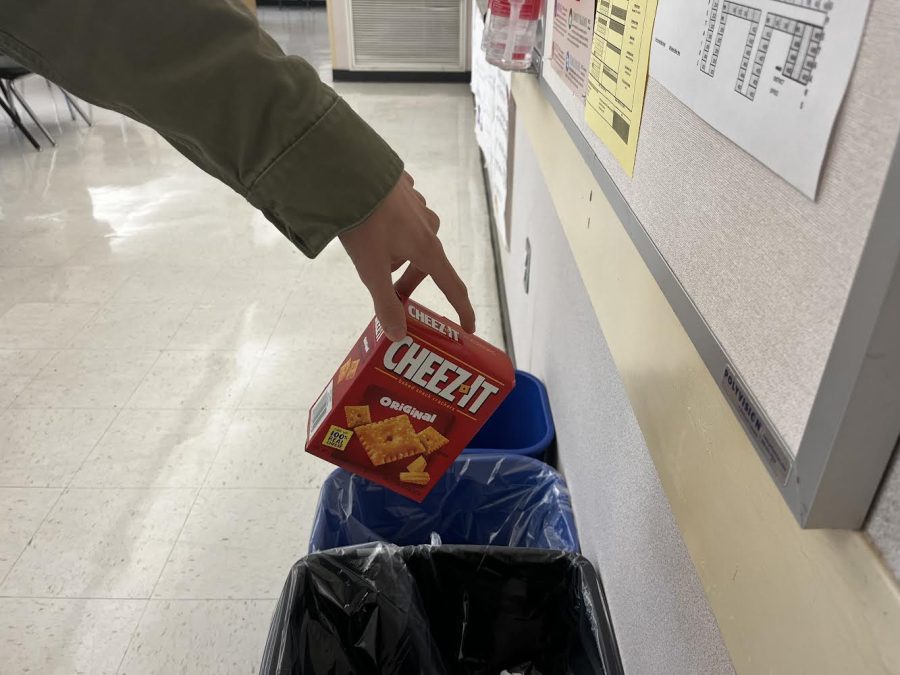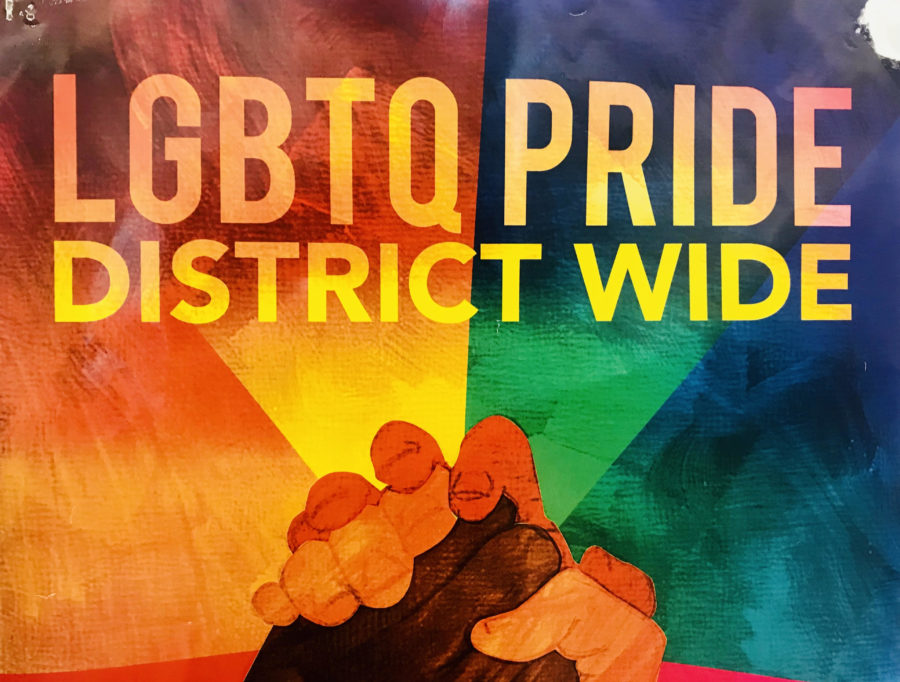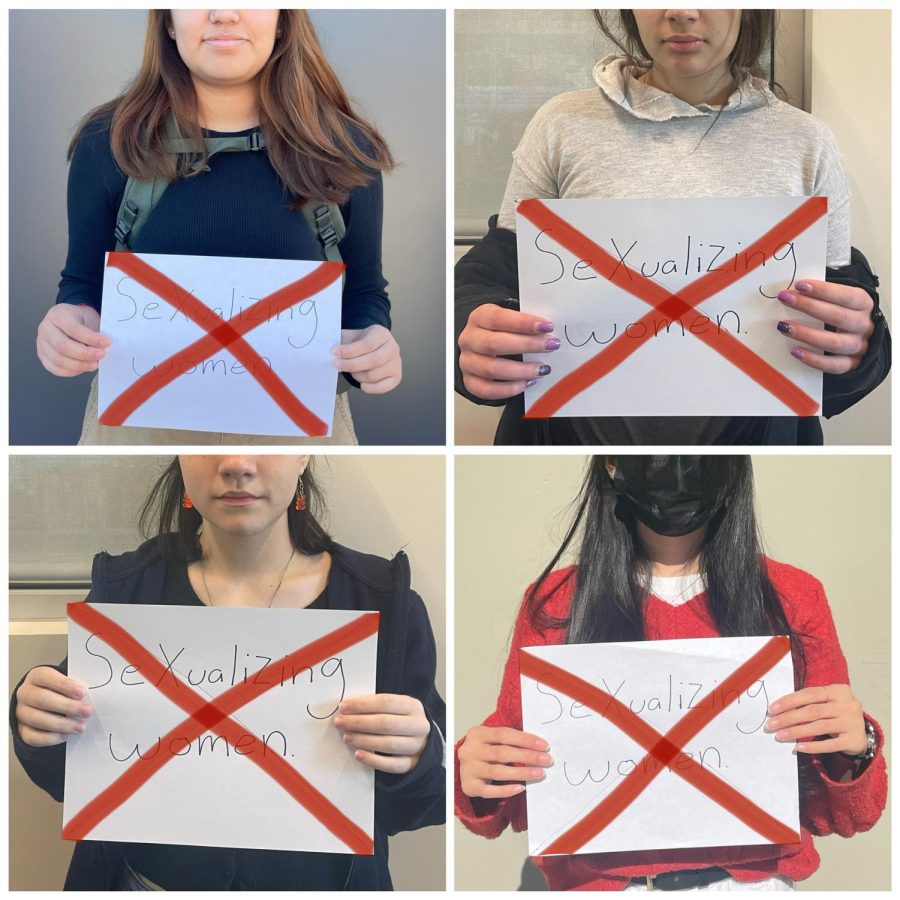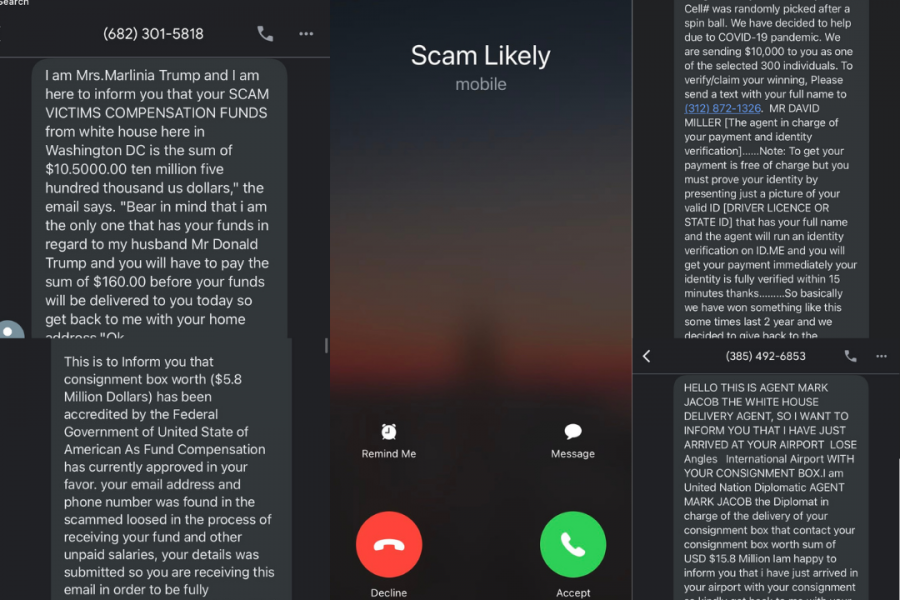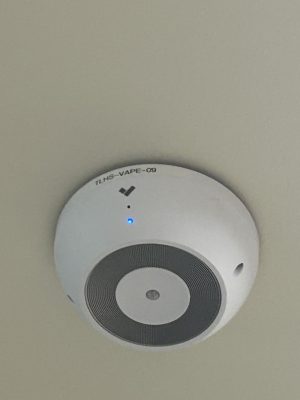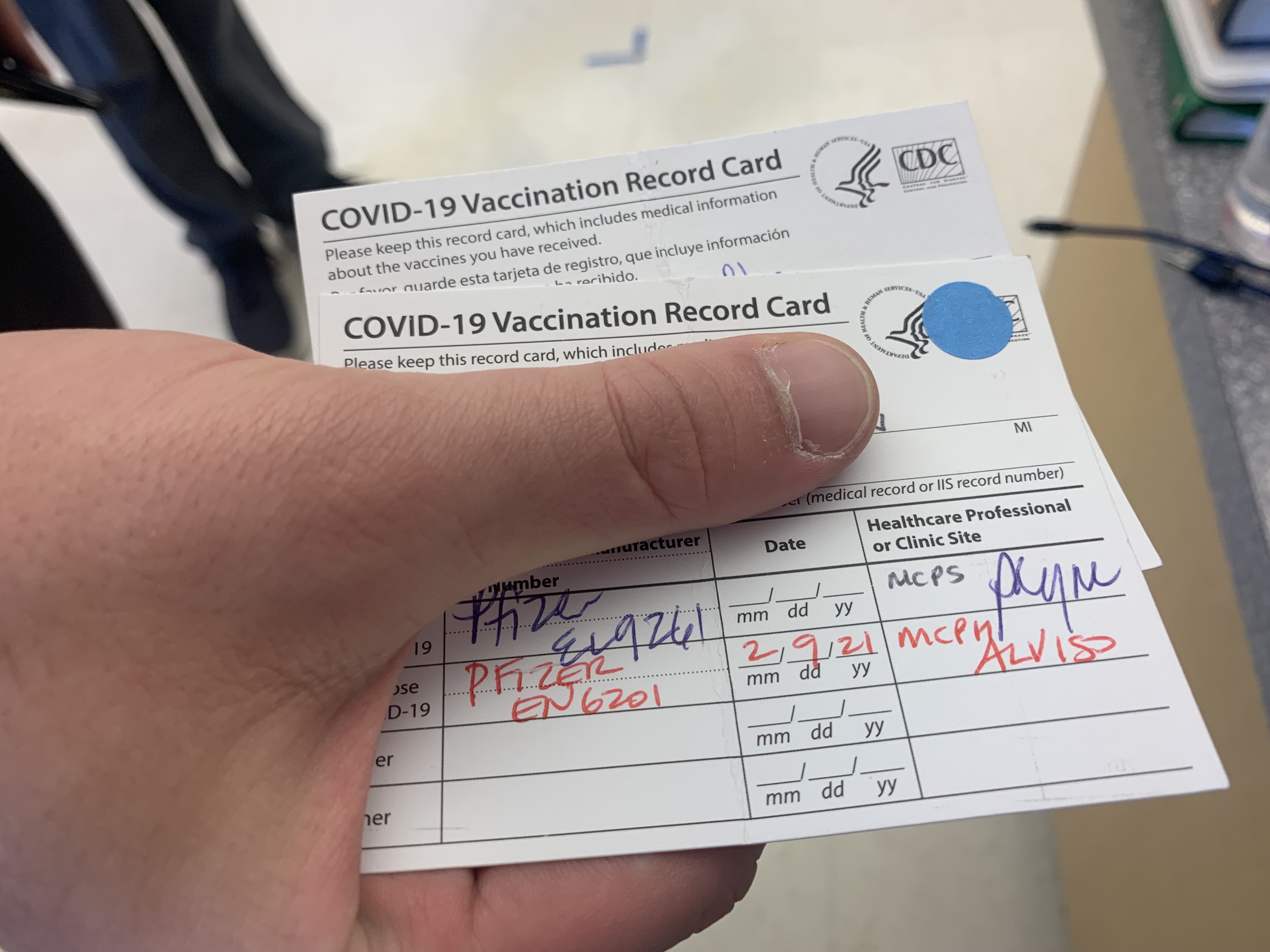Spamful
October 12, 2021
We all know the “Unknown Number” calls we get. Whether we are in an important meeting, in class, or spending time with our family, it always seems to be at the wrong time. What could possibly go wrong when talking to someone over the phone? Maybe they will try to get your address, call you back at the wrong time, or take your entire life savings because “your computer has a virus.” Have you ever wondered what would happen if you actually answered one of those calls? Who is on the other end of the line? What’s their story? In an interview with Junior, Jonathan Aguilar I asked him “What you dislike most about scam calls” the response was “How they are always consistent, I had to buy a scam blocker just to reduce the number of calls I get a day.” While companies such as Verizon and T-Mobile offer a service for a small monthly fee to reduce the number of scam calls you get, the blocker never catches them all.
For many years, these scammers have lived in impoverished areas, countries like Nigeria, India, and most recently, the United States. The poverty-stricken towns of these countries may show you why these scammers do what they do. The scammers often live in small apartment buildings, with very little resources to live a comfortable life.
Oftentimes, these scammers are normal people trying to get through life with just enough money to survive. In a YouTube interview with one of these scammers, the scammer outlines that “this is only a temporary job” and that they wanted to become a doctor, and he said, “If I were to dream a bit more, I would have liked to become a pilot.” These scammers often don’t have a choice. Instead, they get too mentally invested in the daily routine of signing into a computer and contacting innocent citizens around the world.
In most cases, we see that the leaders of these call centers often live in lavish homes, with a celebrity-like lifestyle. While we still don’t know the inside lives of these scammers to the extent that should be known, we do know that they don’t have much involvement with the individual scams. Instead, they are the ones who take home the massive paychecks, often in the tens of thousands of dollars. From an article posted by the BBC, a scam boss was quoted saying, “I was making more money than an MBA graduate.”
Showing who is behind these scams is interesting, but it’s also fascinating to find what is behind these scams, the technology they use, and the buildings they operate within. For the phone systems they use, it is common to find that they use a program called FreePBX or IncrediblePBX. This software allows the scammers to set up interactive call systems, such as voice prompts saying, “press one for a technician, or press two to speak to an operator.” The software is easy to notice, the hold music is the same, and the voices are often the same across multiple call centers. They often use various software programs that have the name Auto Dialer attached to them. This software allows the scammer to dial immediately after victims hang up or they are finished with the call, an incredibly effective tool that shaves minutes off of the time the scammers waste, as time is a valuable factor that determines their salaries. In an interview with Jonathan, I asked, “how often do the scammers call you?” His response was shocking. “Five calls a day, the worst it’s gotten was one call every 10-15 minutes.” While speaking with Jonathan after the interview, Junior Flavio Turro said “once you answer one of them, they will keep calling you, don’t answer them!”
We have heard of people getting scammed, we don’t get to see what each scammer says. We have followed through with a scam that targets your identity and finances. The scammer first starts out with an official, yet the polite message that is most likely scripted. The message that we were sent starts out like this: “Hello, hope you’re staying safe. We are Wolverine FLL Club, the 2021 $1.05 Billion winners of the Mega Millions Jackpot (POWER BALL). We are donating $10,000 each to 300 random individuals. We congratulate you because your cell number was randomly picked after a spin ball.” While these messages are often enticing, they do not mean anything legitimate. Instead, they prey on vulnerable, gullible people. Further, into the interview, I asked, “Have you ever been scammed?” His response being, “No, scams are easy to tell. But they are mostly about your [car’s] warranty.” Car warranty scams are very common. They prey on vulnerable first-time car owners and the elderly.
We know it’s hard for scammers to get out of this cycle of scamming, but it is imperative that we work together to not answer these calls. If everyone stopped answering these calls we would reach a point where these scammers would be able to move on to another, brighter career.












